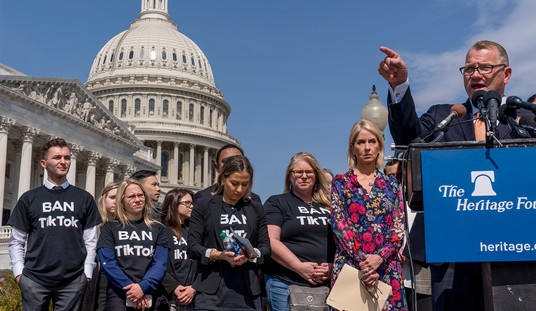This past week saw old stories becoming new again as the state legislature of Arizona passed what has been commonly referred to as the “birther bill,” and sent it to Gov. Jan Brewer’s desk for signature. This immediately raised many of the same hackles on both sides of the aisle regarding President Obama, a fight I have no interest in rehashing here today. However, it does bring up some important questions, both in terms of common sense and constitutionality, which merit a fresh look.
Before getting to the legal issues, I would first insert a brief note of what seems to be common sense. To get the politics out of the debate, let us assume for a moment that questions had never arisen over the circumstances of the president’s birth. (And to keep folks on both sides of the aisle happy, let us also say that John McCain had been born in Arizona and not Panama.) There are very few actual minimum qualifications to be president – in fact, there are really only two. Why would we find it so unreasonable that the states would expect proof that both of those qualifications were met by any candidate prior to having their name entered on the ballot? Perhaps a better question might be, why weren’t all of the states doing that already?
But common sense and the law intersect only rarely, so we should give the constitutional soundness of the law a fair look. To get started, I strongly suggest you take a look at attorney Doug Mataconis’ piece at Outside the Beltway on the subject where he has done the research and legwork already. Doug breaks the analysis down into three areas, two of which I take some exception with and one which passes the technical smell test while looking a bit sketchy in the court of common sense.
First he examines the 12th and 20th amendments, clarifying who controls the ability to define the qualifications for office. This part is clear enough and stands on its own, assuming Arizona was trying to change the requirements to hold the office of president. But this law doesn’t seek to do that.
This dovetails nicely into Mataconis’ second point, that of previous court decisions over the rights of states to determine ballot access requirements. He cites the case of U.S. Term Limits v Thornton, where Arkansas attempted to introduce congressional term limits by amending the state constitution. The Supreme Court shot that one down, and for good reason. The real effect of the amendment resulted in the state essentially adding a new requirement for holding office which did not exist in the United States constitution. (That being that the candidate must not have served more than “x” terms in the office previously.) But again, the Arizona law does not add a new requirement for presidential candidates, so I’m not sure it applies here. (See Doug’s article for the applicable excerpts from the court decision and decide for yourself.)
The final piece of the puzzle which Doug examines is much harder to get around, were one inclined to try, and invokes the Full Faith and Credit clause (FF&C) of the constitution.
Section 1 of Article IV of the Constitution requires states to give full faith and credit to the public Acts, Records, and judicial Proceedings of every other State. This includes accepting as genuine records from a sister state that have been officially certified under seal from the appropriate record keeper. Under Arizona’s law, the Hawaii Certification Of Live Birth, which is an official document from the State of Hawaii, and the only birth record that the state releases. By failing to accept this document, even for the limited purpose that this law is written for, Arizona would be failing to give full faith and credit to the records of not just Hawaii, but every other state that only issues COLB’s as birth records.
On the surface there is very little to argue here. The states are, indeed, constitutionally required to accept the legal records and documents of their sister states. But the question raised here is not so much to do with pending Arizona legislation as with modern interpretation of the FF&C clause. This is one which shares a great deal in common with its bastard cousin, the interstate commerce clause. Both were of pressing concern and importance to the founders at the time the constitution was written. And both gradually became irrelevant and little thought of for generations until being resurrected and re-purposed by both Congress and the courts in very dodgy ways a century or more later.
While the commerce clause is perhaps the most abused of any today – abducted by Congress to give themselves the power to make laws covering everything from murder to environmental protection – the FF&C clause has the potential to “evolve” nearly as much. The founders had a very different vision of the United States than what we eventually wound up with. They pictured a looser confederation of powerful, nearly autonomous states, each making many of their own rules and regulations, occasionally scrapping with each other and possibly getting involved in trade wars or other disputes. It was a rather different vision of the union than the nearly seamless tapestry of states we see today with virtually unrestricted borders and a very powerful central federal government.
These clauses were put in place to avoid those worst case scenarios. In Federalist 42, Madison wrote about this extensively, describing the FF&C clause as being “indeterminate and of little importance” except in the prevention of individual states from totally warping the justice system to their own ends.
The power of prescribing by general laws, the manner in which the public acts, records and judicial proceedings of each State shall be proved, and the effect they shall have in other States, is an evident and valuable improvement on the clause relating to this subject in the articles of Confederation. The meaning of the latter is extremely indeterminate, and can be of little importance under any interpretation which it will bear. The power here established may be rendered a very convenient instrument of justice, and be particularly beneficial on the borders of contiguous States, where the effects liable to justice may be suddenly and secretly translated, in any stage of the process, within a foreign jurisdiction.
It’s hard to believe that Madison would have imagined this clause of “little importance” eventually being used to settle a food fight between two states over which version of a birth certificate could be acceptable to get on the ballot. And generally, as I said, this is one of the ones which traditionally receives little attention. If you have a drivers license in Florida you can drive in Georgia, at least until you’ve stayed there long enough to put your state of residence in question. If your ID shows you are old enough to hold a full time job in your home state, it’s good enough for employers over the border in the next one.
Of course, today FF&C will continue to get more attention for political reasons than legal ones. If you get married in New York, you don’t have to get married again when you and your spouse move to California. But what if you happen to be two women who got married in Vermont and you move to Georgia? Oh, what a tangled web we weave…
In summary, I don’t have a technical grudge against the FF&C argument saying that Arizona should be forced to accept the state regulated certification of birth from Hawaii or other locations in the country. But as to the central question, should they be allowed to define what documents are required to prove eligibility to appear on the ballot, assuming they don’t add any new requirements for office not found in the constitution? There are already wide variations from state to state on requirements placed on office seekers in terms of forms to be filed, fees to be paid, signatures to be gathered, etc. Shouldn’t the states be able to determine what ID they will accept as proof of minimum age and status as a “natural born citizen?”
The current arguments over Obama’s circumstances of birth may have poisoned the well too much for us to have a reasoned, rationale debate on this for now.
This post was promoted from GreenRoom to HotAir.com.
To see the comments on the original post, look here.









Join the conversation as a VIP Member